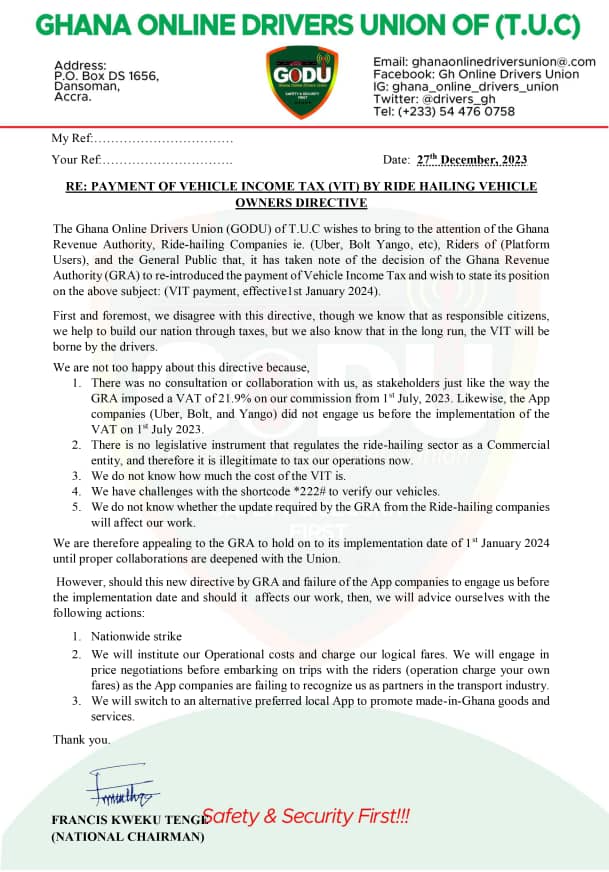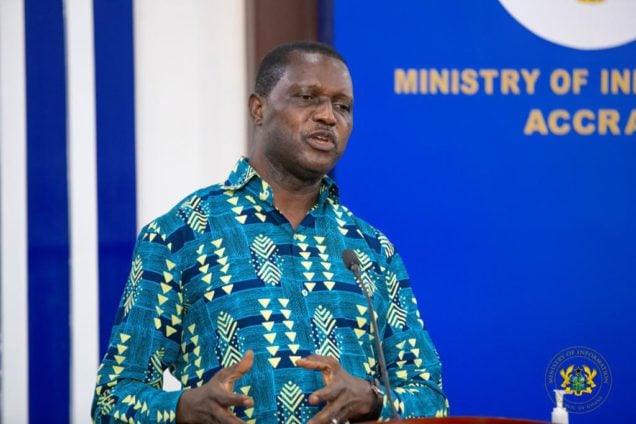
The Ghana National Association of Teachers (GNAT) has given the government an ultimatum to resolve all outstanding issues affecting teachers by April 30, 2025. Key concerns include the delayed implementation of a Scheme of Service for Ghana Education Service (GES) staff and challenges with the Human Resource Management Information System, which has led to salary and promotion delays.
These issues were part of a dispute that led three teacher unions to strike on March 20, 2024. Following the strike, the National Labour Commission (NLC) directed the GES to develop a Scheme of Service to prevent future appointment challenges. Although a draft was submitted and reviewed, GNAT says the government has failed to finalise and implement it.
GNAT warned that failure to act by the deadline could disrupt industrial peace. “These unresolved issues have caused widespread anger and disillusionment among teachers,” the association stated in a letter signed by its General Secretary, Thomas Musah. It urged the Ministry of Education, the Ministry of Labour and other relevant agencies to comply with the NLC’s directives to avoid further conflict.
Teachers are the backbone of any nation’s education system, yet, in Ghana, the teaching profession continues to suffer from systemic neglect. The ultimatum by GNAT for the government to address long-standing issues by April 30, 2025 shows the severity of the crisis. If these grievances remain unresolved, industrial action looms, a scenario that will undoubtedly disrupt education nationwide. The numerous school students around the country will bear the brunt of the strike action.
At the heart of the teachers’ frustration are two major concerns: the non-implementation of a Scheme of Service for GES staff and the flawed Human Resource Management Information System (HRMIS). The absence of a Scheme of Service has created inconsistencies in career progression, appointment procedures, and job security, leaving teachers in limbo. Meanwhile, the HRMIS has led to salary delays and promotion bottlenecks, adding financial strain to an already underpaid workforce.
These grievances are not new. In March 2024, teacher unions staged a nationwide strike, demanding better working conditions, but a year later, little progress has been made. The government’s sluggish approach to addressing teachers’ concerns reflects a broader pattern of neglect within the public sector. The Scheme of Service, which should provide clear guidelines for career advancement and job roles, remains unsigned despite extensive consultations.
GNAT and other teacher unions had engaged in discussions with the GES and its consultant, PricewaterhouseCoopers, to finalise the document. However, bureaucratic inertia has stalled its implementation. Moreover, the HRMIS, instead of streamlining administrative processes, has introduced inefficiencies. Many teachers have reported delayed salaries, incorrect deductions, and unclear promotion timelines. This is particularly distressing, given the economic hardship in the country, where inflation continues to erode salaries, making timely and adequate compensation crucial.
The government’s failure to resolve these issues threatens the stability of the education sector. Already, morale among teachers is low, with many considering leaving the profession or seeking opportunities abroad.
Additionally, unresolved tensions could escalate into another nationwide strike, disrupting academic activities and affecting students’ performance, particularly those preparing for crucial examinations.
Beyond the immediate disruptions, the government’s inaction sends a troubling message about its commitment to education. If teachers who are tasked with nurturing the nation’s future leaders are treated with such disregard, what does that say about the country’s priorities? Education should be at the forefront of national development, yet teachers are constantly forced to fight for basic rights and fair treatment.
The government must demonstrate its commitment by meeting them even before the April 30 deadline and ensuring that teachers receive the respect, support, and compensation they deserve. Failure to do so will not only deepen the crisis in the education sector. Now is the time for action, not empty promises.
The post Editorial: Government And GNAT Must Dialogue To Avert Nationwide Strike appeared first on The Ghanaian Chronicle.
Read Full Story























Facebook
Twitter
Pinterest
Instagram
Google+
YouTube
LinkedIn
RSS